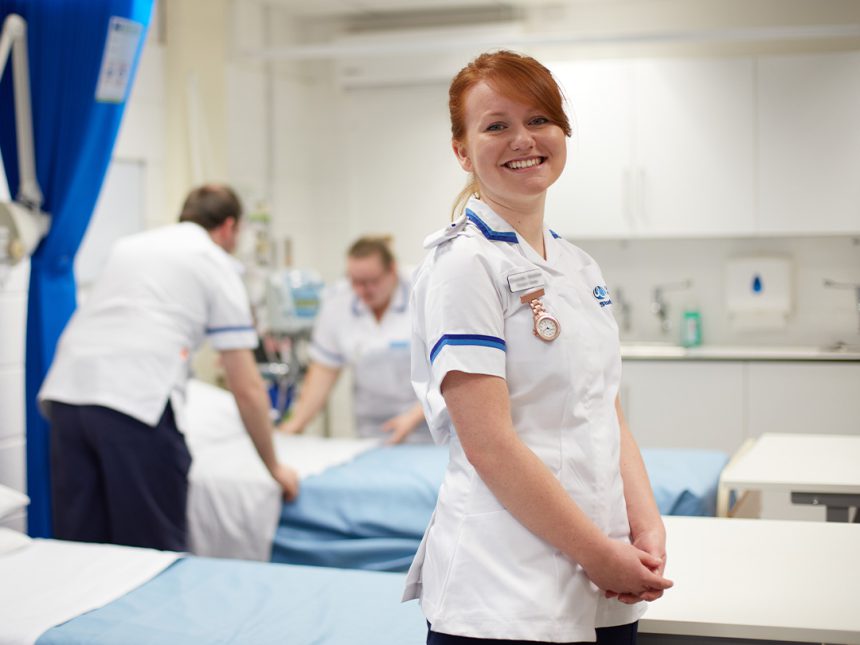Placement is a key part of many courses at the University of Worcester. It’s an opportunity to apply your knowledge in real-world settings, gain valuable experience, and develop as a professional.
But what should you expect before you go? How do you navigate an unfamiliar setting? Are you concerned about support and your PPAP form? Here’s a guide to help you through your placement journey.
Understanding the PPAP Form
Before starting placement, you may come across the PPAP (Practice Placement Adjustment Plan) form. This is a useful tool if you require additional support or have specific needs, such as caring responsibilities or transport requirements. You can complete this form with your Personal Academic Tutor (PAT) or the Disability and Dyslexia team if needed.
The PPAP is your document, meaning you can include as much or as little information as you feel comfortable with. While some may choose to disclose their needs, others may not, and that is entirely your choice. The PPAP exists to support you, and you decide when and how to share it.
Preparing for Placement
Once you receive your placement allocation, your mind will likely be filled with questions: What will it be like? What hours will I work? What should I bring? To help ease any anxiety, write down your questions and make a list. While you’ll receive some placement information, additional queries will naturally arise.
A pre-placement visit is highly recommended. Email your practice educator to arrange a visit or a call to discuss your questions. This shows initiative and enthusiasm—qualities that leave a great first impression. It also helps ease first-day nerves by allowing you to familiarise yourself with the location and key contacts. If an in-person visit isn’t possible, a phone call or Teams meeting can be just as helpful. This is also an excellent time to bring up your PPAP document if applicable.

First Day: What to Expect
First impressions matter, so arrive on time, wear an ironed uniform, and bring a positive attitude. The professionals you meet during your placement may be your future colleagues!
On the first day, you’ll have an initial interview and orientation. This is a great opportunity to:
- Discuss your expectations and learning outcomes.
- Understand the support available to you.
- Ask any questions or address any concerns.
- Establish clear communication with your practice educator.
Remember, your practice educator is there to help you succeed, so don’t hesitate to seek guidance.
Essential Tips for Placements
1. Keep a Notebook
A notebook is invaluable for jotting down key information, terminology, and reflections. Before using one, check with your practice educator regarding confidentiality and GDPR regulations.
2. Stay Hydrated and Energized
A refillable water bottle is a must—long days can make it easy to forget to drink enough water. Pack snacks and lunch to keep your energy up, as breaks may vary in timing and structure.
3. Use a Fob Watch
For healthcare placements, a fob watch is essential. You’ll be surprised how often you need to check the time! If your placement is non-clinical, check whether a regular wristwatch is acceptable.
4. Research Your Placement
A little preparation goes a long way. Reading up on your placement setting, its policies, and relevant topics beforehand will make you feel more confident and show that you are proactive and engaged.
5. Be Honest and Open
If a placement isn’t aligned with your strengths or interests, or if you need more guidance, be honest. Learning is a process, and you’re not expected to know everything. Speak up if you require additional support, prefer more independence, or learn better in a different way.
6. Start Your Evidence Collection Early
From day one, think about how you will evidence your learning outcomes. Planning ahead reduces stress and helps you stay on top of your placement requirements.

Final Thoughts
Placement has been one of the highlights of my course. It’s given me the chance to apply my knowledge, develop skills, and gain real-world experience in occupational therapy. Initially, I was nervous about one of my placements, but by approaching it with an open and positive mindset, I ended up having an incredible experience. I’ve been encouraged to learn from mistakes, apply theory to practice, and explore different areas of the profession.
If you have placement tips, share them with your cohort! If you’ve completed a placement that someone else is about to start, pass on your insights—it can make a huge difference.
Good luck, and enjoy your placement journey!







